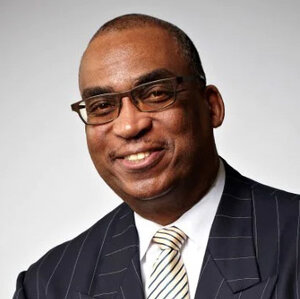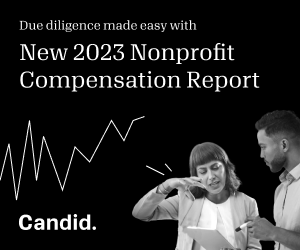The need to donate to historically Black colleges and universities

“A mind is a terrible thing to waste.” In 1972, this slogan was introduced by the United Negro College Fund (UNCF). It was a major part of the organization’s national media campaign to raise money for historically Black colleges and universities (HBCUs). For decades, it was normal to see television commercials urging people to make philanthropic donations to HBCUs.
While we no longer see those commercials, the need for donations is remains great. And as we celebrate Martin Luther King, Jr. Day and Black History Month, I ask that you carve out a meaningful portion of your 2023 grantmaking and charitable dollars and donate to at least one of the 101 HBCUs in the country.
I am not an alumnus of an HBCU. I graduated from Williams College and Harvard Business School. But I love and support HBCUs because of their history and, even more importantly, their significance to our country today.
The average endowment of an HBCU is a mere $12 million. Despite the financial constraints they face, these schools provide a wonderful education to more than 300,000 students annually, most of whom are Black, and produce extraordinary results. In the words of Pulitzer Prize recipient Nikole Hannah-Jones, HBCUs, which make up only 3 percent of all colleges and universities in America, “clearly punch above their weight class.” They have been phenomenal contributors to our nation: 80 percent of all Black judges today attended an HBCU, as did 50 percent of Black lawyers, 50 percent of Black doctors, 40 percent of Black engineers, 40 percent of Black members of Congress, 13 percent of Black corporate CEOs, and the first Black vice president of the United States.
From 2002 to 2011, the Vice President Kamala Harris’s alma mater, Howard University, graduated 220 Black men and women who received PhDs in STEM subject areas. At the same rate of productivity, Stanford, Harvard, MIT, and Yale combined should have graduated at least 880 Black STEM doctoral students; instead, they cumulatively produced only 221 PhDs, one more than Howard. These amazing outcomes at just one school underscore the importance of HBCUs today.
Another reason why HBCUs are so important today is that they educate a significant number of students with unique family backgrounds than most students at predominantly white institutions (PWIs). For example, over 60 percent of HBCU students are first-generation college students. By comparison, only 33 percent of students at PWIs are first generation.
HBCUs also do a brilliant job of serving students from families with financial challenges. For example, over 70 percent of HBCU students receive Pell Grants from the federal government, compared with 39 percent of PWI students.
This practice of serving students who have great needs is the tradition of HBCUs. The majority of HBCUs were created between 1865 and 1900, including nine in 1867, the largest number in one year. This was two years after the passage of the 13th Amendment, which emancipated all four million enslaved Black Americans. These schools were created because government laws barred Black Americans from attending existing institutions of higher education.
While schools such as Bethune-Cookman University and Lincoln University in Missouri were created by Black founders, most HBCUs were founded by white Americans. Howard University was founded by Otis Howard, a general in the Union Army. Lincoln University in Pennsylvania was founded by Quakers. I call on grantmakers and donors large and small, Black and white and others, to follow in the footsteps of your ancestors and financially support HBCUs. These are the alma maters of great American leaders including Dr. Martin Luther King, Jr., Supreme Court Justice Thurgood Marshall, and Children’s Defense Fund founder Marian Wright Edelman. Public figures who have recent made large gifts to HBCUs include Amazon co-founder MacKenzie Scott ($560 million), Netflix CEO Reed Hastings ($120 million), former New York City mayor Michael R. Bloomberg ($100 million), and television network owner Oprah Winfrey ($30 million). Let us all join these philanthropists to ensure that no mind gets wasted.
Steven Rogers is a retired Harvard Business School professor. He is the author of A Letter to My White Friends and Colleagues: What You Can Do Right Now to Help the Black Community.








